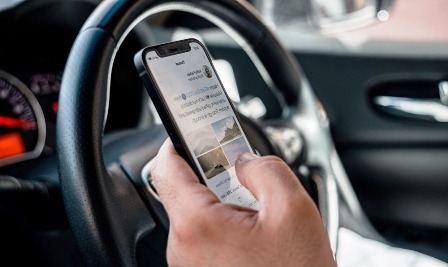EUGENE HERBERT
Two recent surveys published in The Travelers in the USA, suggest that employers may need to assume more responsibility for workplace crashes involving cellphones than what one would expect.
Compiled in a 2019 Travelers Risk Index, findings from the survey point at the connected nature of society combined with mounting workplace expectations as a considerable contributor to road crashes resulting from distractions.
Some interesting statistics were revealed in the surveys:
While three out of four companies have a distracted while driving (DWD) policy in place, only 18% of companies require employees to set their phone to ‘Do Not Disturb’ before leaving
While 74% of surveyed executives consider distracted driving to be a grave concern, another 12% do not worry about the liability associated with a DWD crash
10% of consumers admit to talking on the phone while driving
30% of drivers admit to being in a near-miss collision because they were distracted
These statistics provide a concerning perspective of DWD in the workplace.
If according to the surveys, 87% of executives expect employees to sometimes or frequently be reachable when outside the office, it is not surprising that 20% of consumers reply to work-related messages while driving, 50% say they need to always be available and 17% consider driving time an ideal time to get more work done.
“A realistic solution to this is not a simple one. If anything can wait until the driver reaches their destination, pressure should be placed on executives to emphasize this in their communication. If it cannot wait, however, DWD policies should take cognizance of this and outline how to handle it.
There are various options available. One is to rather call, if the employee has Bluetooth enabled, as opposed to sending messages or emails. Another is to make use of new technology that allows employees to be made aware of urgent communication without touching a phone. These apps can also block non-essential applications, which effectively remove the decision from the hands of employees, who may not take DWD policies seriously.
The results from the survey illustrate the importance of understanding what drives employees to use their phones despite DWD policies. It should also encourage companies to assess the demands placed on employees, particularly when they are driving, and how to change behaviour to ensure DWD policies are enforced and drivers have a safe working environment.
Eugene Herbert is the CEO of MasterDrive, South Africa
©Copyright MOTORING WORLD INTERNATIONAL.
All rights reserved. Materials, photographs, illustrations and other digital content on this website, may not be reproduced, published, broadcast, rewritten or redistributed in whole or in part without prior written permission from Motoring World International
Contact: editor@motoringworldng.com





